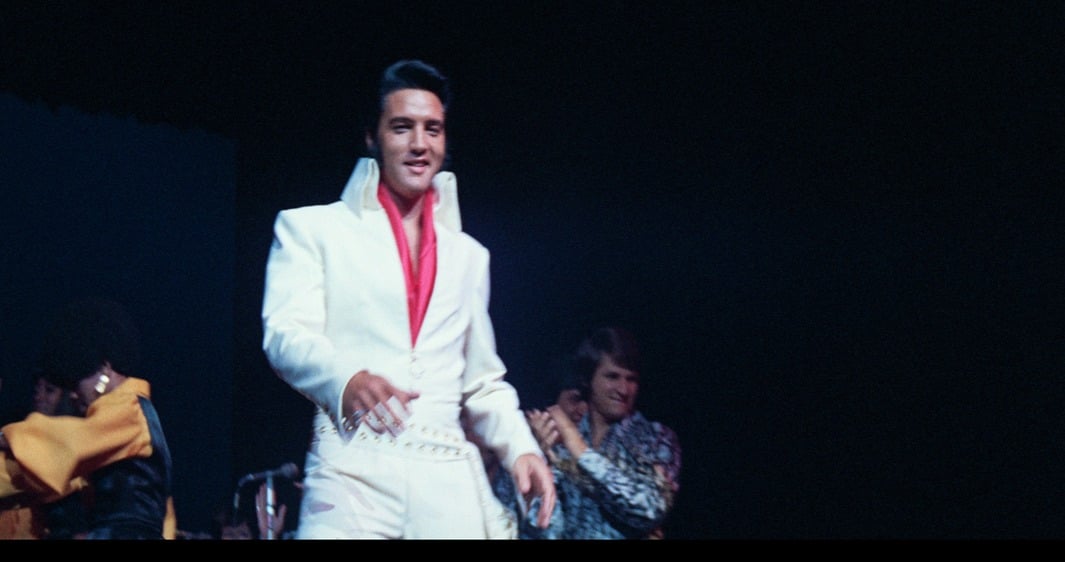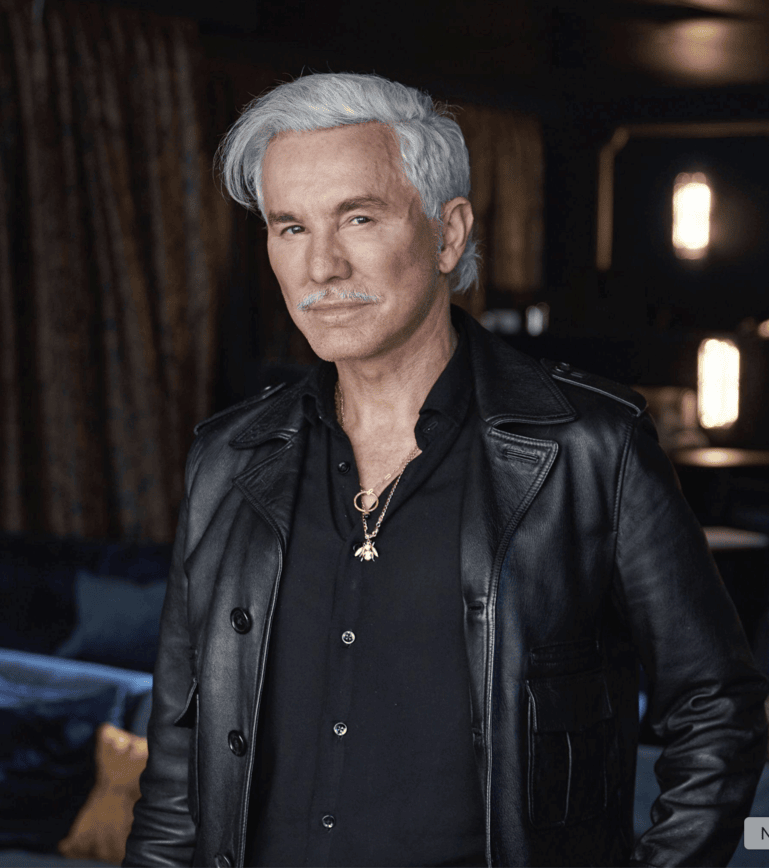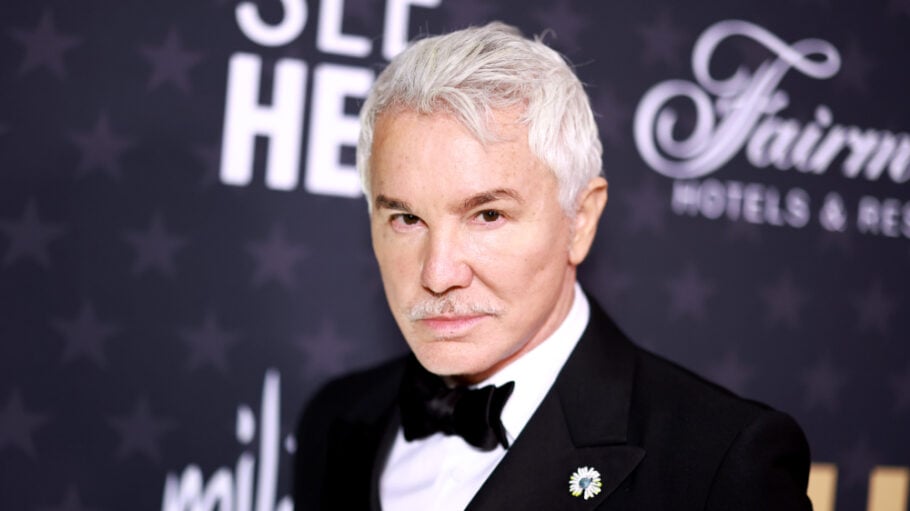Dancing and singing in the aisles may not be the usual response to a film festival premiere, but when it comes to a Baz Luhrmann film, that’s exactly what happened at the Toronto International Film Festival.
Luhrmann has been welcomed to the respected festival many times since his film “Strictly Ballroom” was warmly embraced 35 years ago, so there was much expectation for his new unveiling, “EPiC: Elvis Presley in Concert,” which had its world premiere at the festival.
So popular were the screenings that an extra IMAX screening was added to the schedule, and the movie was awarded first runner-up in the audience-selected People’s Choice Award for Documentary.
You could say Luhrmann is still busy renovating the King of Rock and Roll’s oft-tarnished image. The Oscar-nominated 2022 film “Elvis” explored Presley’s (played by Austin Butler) dependent but ultimately damaging relationship with Colonel Tom Parker (Tom Hanks) and the paralysing effect it had on Presley’s music career, leaving him stuck in a Vegas residency time warp until close to his untimely death at the age of 42 on August 16, 1977.
With “EPiC,” utilising a wealth of never-before-seen footage, Luhrmann reinvents his time in Sin City. Unlike now, when the world’s hottest stars clamour for a spot on the strip, Vegas was a wasteland of lounge singers in the 1970s when Elvis predominantly played (he began a series of residencies at the then called International Hotel on July 31, 1969). Fringed jumpsuits, gaudy rings, sunglasses and wild onstage karate chops would be forever embedded in the Elvis image. “EPiC,” however, shows an exciting and thrilling Elvis in performance.
“That voice — no matter what condition he is in, is never out of tune and he is always spiritual,” Luhrmann tells Variety AU/NZ.
Luhrmann arrives for our interview at a Toronto hotel channeling the man himself, wearing a long black jacket and a custom-made Elvis-faced hoodie. He’s appreciative of the overwhelming interest in his film debut at the festival.
“I thought they would applaud but I didn’t realise the chain effect,” he says. “They were reacting to him onscreen as if he was actually alive.”

The original search for footage started during the making of “Elvis.” It was long rumoured that in underground salt mines in Kansas, where classic Hollywood studio film archives are stored, laid unused footage of the 1970’s concert films “Elvis: That’s the Way It Is” and “Elvis on Tour.”
“My initial thought was that, if we could find it, we may be able to restore the unused footage and use it in our Elvis feature,” notes Luhrmann.
He was astonished at what they would find. “It was literally like ‘Raiders of the Lost Ark,'” he recalls. They uncovered 69 boxes containing 59 hours of footage, including concerts, rehearsals and interviews. A lot of the footage came from rehearsals for Elvis’ 1970 residency at the International Hotel, where he would usually perform two sold out shows per day, 7 days a week, for four weeks straight. Between 1969 and 1977 he would rack up 1100 performances.
It wasn’t so much that Luhrmann couldn’t shake Elvis after years of immersion — it became more than that. “I had a choice — I could put it back in the vault or spend more money and bring it back to life,” he says. “ I was getting a lot of pressure from the Elvis fans to release the footage. They were real zealots and they weren’t kidding, so I felt a responsibility to do it.”
The negatives, however, had no synced sound. Only the vocal tracks survived.
It took two years to sync picture and sound with various audio from different sources such as work prints, RCA archives, and, as Luhrmann describes, some shady trades in parking lots.
One of the greatest finds were the unheard recordings of Elvis interviews, including a 45-minute audio tape of him talking candidly about his life. It was these discoveries that gave Luhrmann the basis for a film he says is neither a documentary nor a concert film but a tone poem that offers a more personal experience of the legendary singer.
“Documentaries are usually someone else telling the story but this is Elvis telling his own story,” he says. “So many people have come to think of him as a Halloween costume. What is really touching, and you see this in the film, [is] he’s funny and goofy. He’s just really human. That is the biggest revelation. “

With his long-time collaborator Jonathan Redmond, who is the editor and executive producer of “EPiC,” the film is masterfully crafted with 70 Elvis songs, including classics like “Hound Dog,” “Heartbreak Hotel,” the haunting “In the Ghetto” and the rousing “Suspicious Minds” as well as superb covers such as his gospel deep take on Simon & Garfunkel’s “Bridge Over Troubled Water.” A highlight is his preparation for his first performance of one of his biggest hits, “Burning Love,” so fresh he is still reading the lyrics from a piece of paper.
“EPiC” also offers an intimate view into Elvis’ life behind the scenes including some previously unseen 8mm film of him with toddler Lisa Marie playing at Graceland. Luhrmann also cleverly includes a montage of Colonel Tom Parker to the soundtrack of “You’re the Devil in Disguise” as he lords over Elvis at a press conference, where the singer is asked tricky political questions which he carefully evades.
At the Toronto premier Luhrmann teased the audience that, after this film, there may be more to come, confirming that the team also found in its entirety the unseen concert which fans know as the “Hampton Road Elvis Concert,” referring to Elvis’ performance at Hampton Roads Coliseum in Hampton, Virginia on April 9, 1972 which was originally filmed for “Elvis on Tour.”
“That’s a whole other show,” he told the audience. “Write to your local theatre if you want to see that as a sequel.”
While release plans are still being decided, Luhrmann has promised an event screening in Australia, perhaps at the IMAX theatre in Sydney. “I always try and do something different and I do believe this film needs to have an event component to its release,” he says. “I make films that are audience participatory. I didn’t come this far to have someone watch it in an iPhone on their way to work.”































